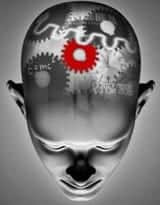In conversations I have, coaches often say to me: “So I have this athlete, and they have great physiology, they’ve got a massive VO2, and a really good motor. But they can’t concentrate, are undisciplined, doesn’t listen to me…but they could be such a success”.
Often people put too much emphasis on the physical capabilities of an athlete, when the mental skills they lack are just as critical to an athlete’s success. It’s almost as though people don’t acknowledge the fact your mental skills, capabilities, self-awareness, ability to understand and work with other people, are just as vital to your success as being able to run fast or step off of both feet, or throw a long ball, or whatever physical example you want to provide.
Recently I was reading a really excellent article about the All Blacks Rugby Union Team. The article spoke of the mental journey the team has been on to ensure that they don’t choke and would perform at their best in the big matches.

The fundamental part of this article was the team’s strategy to combat the likelihood of choking. Instead of treading a well-worn path towards more practice sessions, they in fact didn’t increase their physical training. The team took a different path and started doing a lot more work around mental skills.
Imagine that performance is about creating a perfectly circular wheel with spokes shooting off from the hub. Spokes include all the different elements to create peak performance. This includes physiology, tactics, strategy, mental skills, conditioning, nutrition, and physiotherapy. In essence all these spokes combine to create a perfectly true wheel and therefore, a wheel which runs efficiently.
In working on all these different elements the All Blacks found they never got the big breakthroughs they wanted. So they re-thought the focus around mental skills. Their conclusion was, are mental skills really a spoke or are mental skills more important than a spoke? If mental skills are more important than a spoke what does it become instead? They reasoned, mental skills become the hub of the wheel.
If you think about mental skills being an athlete’s hub, every single decision they make is processed by their brain. So it is critical to acknowledge it is the hub of everything we all do. It is not just an outer piece of the puzzle, it is a central and major piece of the puzzle.
From your own experiences in sport, you could probably tell me about athletes you encountered who maybe didn’t have all of the physical attributes that plenty of others did, but what they did have going for them was their ability to excel at the mental side of the game. As many coaches would suggest, these athletes were mentally tough.
Mental Skills in Sport and Mental Toughness
“Mental Toughness” is a term that often has it’s meaning debated. My definition of mental toughness was informed by a select group of people who truly model it to the highest degree, the US Navy SEALs. When I was working with the USA Olympic Rowing Team, I had the privilege of spending time with the SEAL Instructors and Officers who put our Olympic Rowers through the most demanding workout I have ever seen. Before we began the workout, we all sat in a briefing room and were inducted into what the SEAL Culture was about.
Before long, the SEAL Instructor, spoke about Mental Skills and Toughness. SEALs describe themselves as ordinary people who do extraordinary things. When I looked at them, the Seals were obviously physically fit, but you would never know by looking, just how extraordinary they were. On this day, only time would give you an idea of how tough these people were. Toughness has NOTHING to do with what you physically look like!
Defining Mental Skills and Toughness for many is a long winded experience. For the Navy SEALs it comprised the following four elements. Check them off yourself and rate how well you feel you do each.
- The ability to set short term goals.
- The ability to talk positively to yourself.
- The ability to manage your emotions.
- The ability to visualize your successful end result.
That’s it, four critical abilities. Here they are broken down and how it applies to any sport.
Setting Short Term Goals
Setting short term goals keeps an athlete focused on productive actions rather than allowing the mind to wander off onto unproductive thoughts which in turn impact your emotions and physiology. When I rowed, as a crew we would have technical focus points for 20 strokes, after each set of this, the focus moves to the next logical part of the stroke or race plan. After a series of these focus points the race is close to over and our mind had stayed on task.
Talking positively to yourself
Talking positively to yourself is about knowing your internal dialogue. People who are mentally tough, have a sense of positive self-efficacy. They inherently believe they are going to achieve a positive outcome and their own thoughts express this out loud to themselves. The Seals would speak encouraging words which also in turn benefits others around them. What an athlete says to themselves when they are behind on the scoreboard has a massive impact on whether they stay behind or take action to make changes.
Manage your emotions
The ability to manage your emotions to ensure you are in the most productive state to compete is a skill most elite athletes develop to some degree. We discuss this in our article on Emotional Intelligence. As far as the Seals were concerned, it also included the ability to stay composed to make quality decisions which impact the lives of others. This is the difference between an athlete and a SEAL. Athletes will never be in this position. Staying composed as an athlete is a relatively simple task compared to what a Seal must deal with.
Visualize your successful end result
Visualizing a successful end result is a hallmark of mental toughness. Every coach knows that visualization is a key skill an athlete can develop which helps them become better at performing at their sport. This vital mental skill prepares an athlete’s body to execute under pressure and to keep doing so in the heat of competition.
What I like most about the SEAL’s definition of Mental Toughness is not only the fact that these are people who know, but also the fact that each of these four areas is an area which can be learnt. Mental Skills can be taught. It takes time and effort like any other aspect of becoming excellent at any sport. However, in many ways, developing mental skills takes far less effort and is far less stressful than physically training hard. To become excellent in this area, does require the acknowledgement of this area being a game breaker when many other areas are almost equal.
Where to from here?
For more information we highly recommend our articles on ‘Sport Psychology and the Mental Game’ where you will find articles on:
- Sport Psychology for the Sports Coach
- Emotional Intelligence in Sport
- 6 ways to Improve an Athlete’s Resiliency
- What to do when your athletes don’t compete as well as they train
- Choking or Panicking – Inside Every Athlete’s Worst Nightmare
- The Amygdala Hijack – When Your Brain Snaps in Sport
- How to Prevent Choking
At Athlete Assessments, we’re here to provide you with excellence in service and to help you be your best. If there is anything we can assist you with, please Contact Us.







1 thought on “Mental Skills in Sport: Preparing your Athletes for Success”
Pingback: What to Look for in Losses – Athlete Assessments